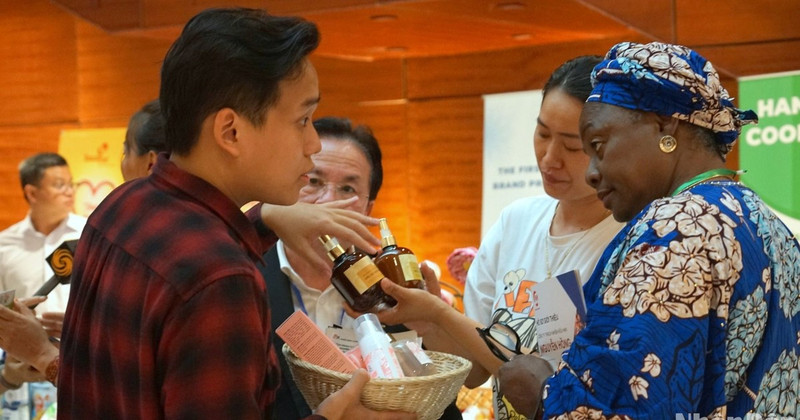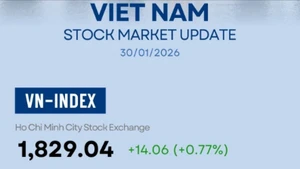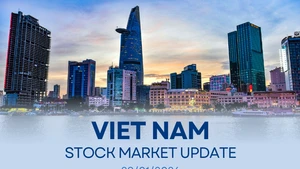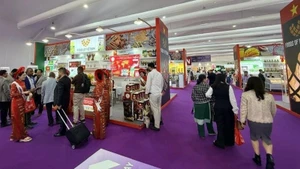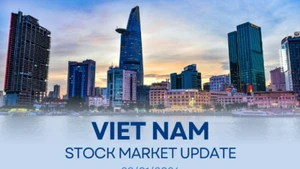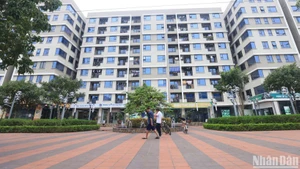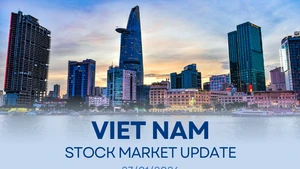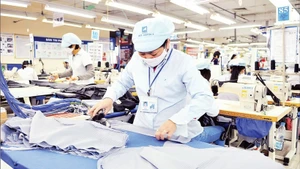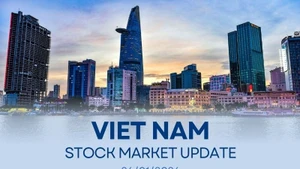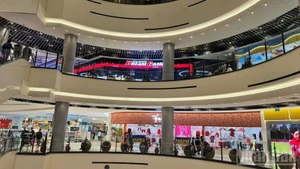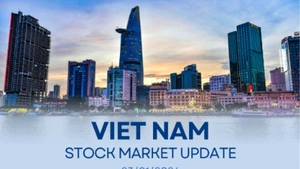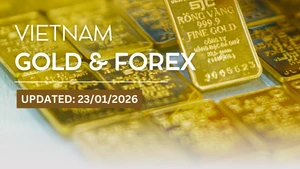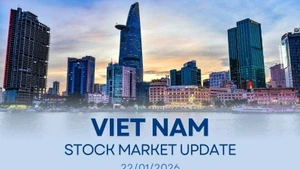The Halal industry not only presents an economic growth opportunity but also enables Vietnam to strengthen its position in the global supply chain of agricultural products and food.
With the government’s support and growing international cooperation, Vietnam has significant potential to become a trusted centre for Halal products and services, contributing to sustainable economic growth in the coming years.
Halal Market — a massive potential awaiting exploration
According to the Ministry of Agriculture and Rural Development, the global Halal market holds enormous potential given that the Muslim population reached approximately 1.94 billion people in 2022, representing nearly a quarter of the world’s population.
The Muslim population is expected to continue growing at an average rate of 1.5% per year — twice the growth rate of the non-Muslim population (0.7% per year) — and is projected to reach around 2.8 billion by 2050.
The scale of the global Halal economy reached 7 trillion USD in 2022 and is expected to grow to about USD 10 trillion by 2028, driven by the increasing Muslim population, rising spending levels, diversification across sectors, and future growth prospects at an annual rate of 6-8%. Today, Halal economic sectors extend beyond food to tourism, cosmetics, and pharmaceuticals.
These are impressive figures for any global production industry. As a vital link in the global agricultural and food supply chain, Vietnam has great potential to develop its Halal industry and boost exports.
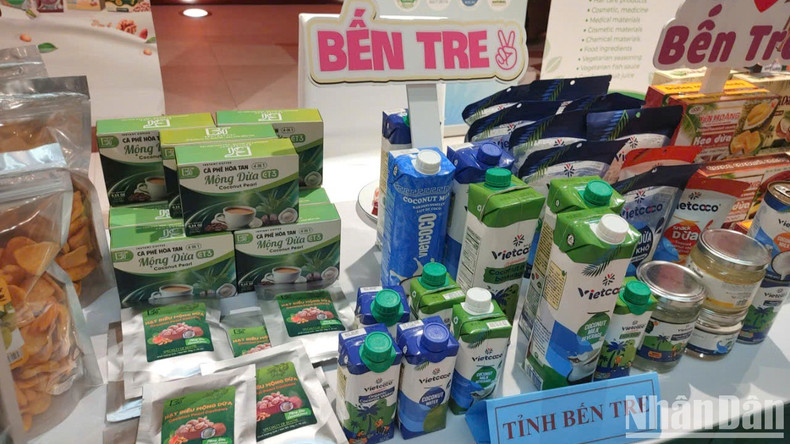 |
| Halal certified products from Ben Tre Province. (Photo: TRUNG HUNG) |
However, Vietnam currently has only about 20 commodities exported to the Halal markets, indicating significant room for expansion. The country also boasts many world-leading agricultural export products, such as rice, tea, coffee, and seafood, which are favoured by the Islamic community.
Notably, with nearly 1,000 enterprises certified as Halal, Vietnam is well-positioned to deepen its participation in this global supply chain.
Alongside these existing advantages, Vietnam still faces several challenges in entering the Halal market. Globally, there is no unified Halal standard, and the certification processes in different countries can vary, complicating investment decisions for businesses looking to produce Halal-compliant products.
Moreover, the costs associated with compliance assessments and investment in specialised Halal production lines can be quite high, putting pressure on small and medium-sized enterprises.
According to Mohamed Jinna, Chairman of the Halal Certification Authority of India, to fully exploit the potential of this market, Vietnam must meet the highest Halal standards and build trust with the global Muslim consumer base.
Jinna emphasised that the Halal certification process needs to be transparent, seamless, and globally recognised, while businesses should invest in modernising and standardising their procedures.
In addition, İhsan ÖVÜT, Secretary General of the Standards and Metrology Institute for the Islamic Countries (SMIIC), affirmed that Vietnam could become an attractive destination for the Muslim community if hotels, restaurants, and tourist facilities adopt Halal standards.
The Halal tourism industry is projected to reach 300 billion USD by 2026, presenting a significant opportunity for Vietnam to attract Muslim tourists from the Middle East, Southeast Asia, and other regions. By ensuring that travel services cater to Halal requirements, Vietnam can tap into this lucrative market and promote cultural exchange while enhancing its economic growth.
Necessary policies and actions
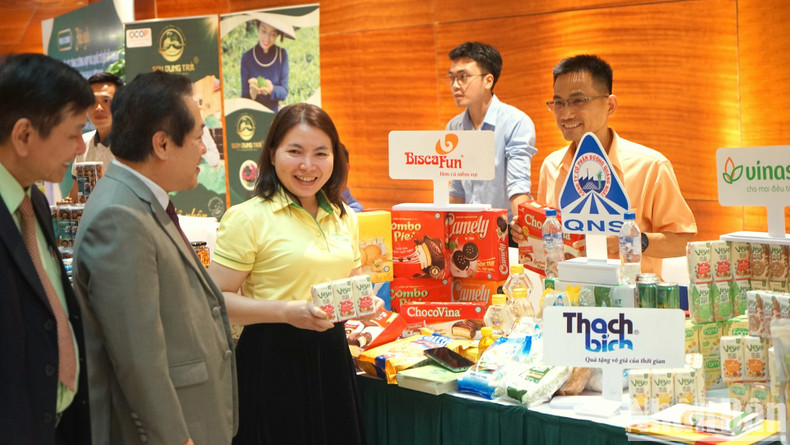 |
| With its strengths in agricultural and food supply, Vietnam has great potential to enhance exports and develop the Halal industry. (Illustrative photo: TRUNG HUNG) |
According to the Ministry of Agriculture and Rural Development, the Party and State have made significant policies to promote the development of the Halal industry. The project on "Enhancing international cooperation to build and develop the Halal Industry in Vietnam by 2030" issued in February 2023 and the establishment Vietnam Halal Certification Authority (HALCERT) in April 2024 are important milestones in bringing Vietnamese Halal products to the world.
Dr. Yousif S. AlHarbi, Vice President of the Saudi Arabia Halal Centre, praised this advancement, emphasising that with unified Halal certification management, Vietnam can increase its competitiveness and expand international markets. International cooperation in developing the Halal ecosystem will also enable Vietnamese businesses to save costs and enhance their competitiveness.
To effectively develop the Halal industry, representatives from the Ministry of Agriculture and Rural Development stated that Vietnam needs to continue promoting bilateral and multilateral cooperation, especially with major partners in the Halal sector, to learn from experiences and develop markets. This includes promoting partnerships based on the linking trend between producers and distributors to foster mutual growth and drive momentum.
Additionally, building and refining the legal framework for Halal is crucial for managing and promoting production activities and services related to the development of the Halal economy. Furthermore, establishing a high-tech Halal ecosystem is also a necessary step. The Halal development strategy should incorporate advanced technologies like artificial intelligence (AI) and green economics to optimise production and meet the demands of the international Halal market.
Moreover, investment should focus on building Halal-compliant facilities and developing a skilled workforce that is knowledgeable about Halal to support businesses, especially small and medium-sized enterprises, in their production and certification processes. This support will help enterprises form a Halal ecosystem in Vietnam compatible with various market requirements, identify product advantages, market opportunities, and prioritise resource investment for development.
For provinces with potential agricultural production, such as Ben Tre and Ninh Thuan, it is essential to enhance the promotion of Halal products while collaborating with partners from Islamic countries in Southeast Asia, the Gulf, the Middle East, and Africa to introduce Vietnamese Halal agricultural products to the world.
Nguyen Truc Son, Vice Chairman of the Ben Tre Provincial People's Committee, emphasised that the enhancement of international cooperation will help provincial businesses access the Halal market and connect with major partners.
For localities to introduce their strong products to this market in the near future, Son asked the state management agencies to support the guidance of Halal certification procedures and provide updated information about the Islamic market. Additionally, they should assist the localities in promoting their potential and strengths, helping to connect with reputable partners, groups, and businesses in the Halal market to facilitate trade and seek investment cooperation opportunities, as well as resolve obstacles in international business in these fields.
